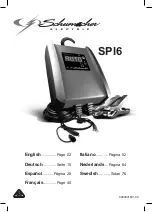
Cadillac CT4 Owner Manual (GMNA-Localizing-U.S./Canada-16500442) -
2023 - CRC - 5/10/22
Driving and Operating
253
.
Shift to a lower gear when
going down steep or long
hills.
{
Warning
Using the brakes to slow the
vehicle on a long downhill
slope can cause brake
overheating, can reduce
brake performance, and
could result in a loss of
braking. Shift the
transmission to a lower gear
to let the engine assist the
brakes on a steep downhill
slope.
{
Warning
Coasting downhill in
N (Neutral) or with the
ignition off is dangerous.
This can cause overheating
of the brakes and loss of
steering assist. Always have
the engine running and the
vehicle in gear.
.
Drive at speeds that keep
the vehicle in its own lane.
Do not swing wide or cross
the center line.
.
Be alert on top of hills;
something could be in your
lane (e.g., stalled car, crash).
.
Pay attention to special road
signs (e.g., falling rocks area,
winding roads, long grades,
passing or no-passing zones)
and take appropriate action.
Winter Driving
Driving on Snow or Ice
Caution
To avoid damage to the
wheels and brake
components, always clear
snow and ice from inside the
wheels and underneath the
vehicle before driving.
Snow or ice between the tires
and the road creates less
traction or grip, so drive
carefully. Wet ice can occur at
about 0 °C (32 °F) when
freezing rain begins to fall.
Avoid driving on wet ice or in
freezing rain until roads can be
treated.
For Slippery Road Driving:
.
Accelerate gently.
Accelerating too quickly
causes the wheels to spin
and makes the surface under
the tires slick.
.
Turn on Traction Control.
See Traction Control/
Electronic Stability Control
.
The Antilock Brake System
(ABS) improves vehicle
stability during hard stops,
but the brakes should be
applied sooner than when on
dry pavement. See Antilock
Brake System (ABS)
.
Allow greater following
distance and watch for
slippery spots. Icy patches
can occur on otherwise clear
roads in shaded areas. The
surface of a curve or an
overpass can remain icy
when the surrounding roads
















































